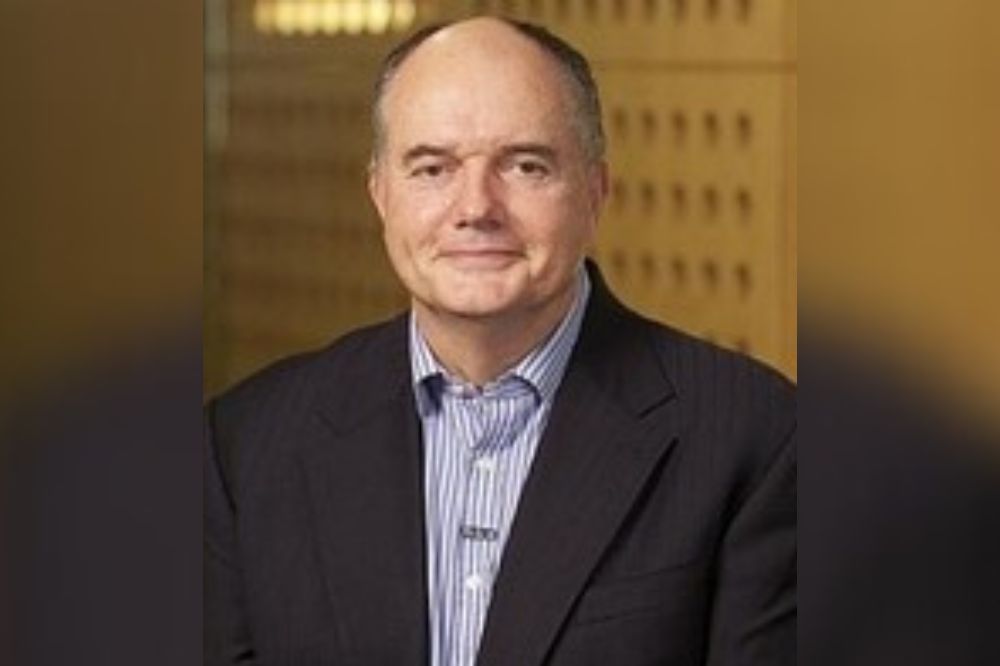Reserve Bank’s charter is changing: how will it impact insurers?

Reserve Bank’s charter is changing: how will it impact insurers? | Insurance Business Australia
Insurance News
Reserve Bank’s charter is changing: how will it impact insurers?
Insurance expert raises concerns
Insurance News
By
Daniel Wood
When a charter engraved in stone is about to change, you know something serious is afoot.
Dr Ian Enright (pictured above) told Insurance Business that the Reserve Bank of Australia’s (RBA) charter is chiselled into a granite slab in Sydney’s Martin Place. Enright, founding chairman of the Australian College of Insurance Studies (ACIS), said there will be two “fundamental changes” to this institution’s framework. He also raised concerns about possible indirect effects for the insurance industry.
Last month, the federal government agreed with all 51 of the recommendations in the independent review of the RBA. The review is the first big shakeup of Australia’s central bank in 40 years.
Insurance Business has asked brokers and industry experts how they see these big upcoming changes to one of the architects of the country’s economic system.
Enright, who is also a lawyer, academic author and company director, said the role of the RBA setting the interest rate and monetary policy “is a critical feature of Australia’s economic policy.” For the insurance industry, he said the other critical features are fiscal policy and the development of national infrastructure.
“The changed interactions of monetary, fiscal and infrastructure policy will be a complex and important outcome of the review,” he said.
An erosion of trust?
Enright said the review could also help bring three significant potential impacts for the insurance industry, all of them negative:
“Firstly, if interest rates stay high or rise and there is no other monetary tool to defeat inflation, premium costs will increase and so will claims costs,” he said.
Enright said the second, connected impact, could be insurance cover becoming worse value for money.
“More policyholders will lapse their policies, not renew or reduce their covers, worsening underinsurance,” he said. “Thirdly, if insurance customers perceive that our financial institutions are profiting from the misery of the cost-of-living crisis, there would be an erosion of the most valuable economic commodity of all: trust.”
Big charter changes
However, Enright also suggested that any impacts on the insurance industry, positive or negative, are linked to how the government implements two “fundamental changes.’
Enright said the RBA’s charter will undergo one of the “fundamental changes.”
“The charter for ‘economic prosperity and welfare of the people of Australia now and in the future’ is to become an ‘overarching purpose,’ not a separate objective for monetary policy,” he said.
Enright said the RBA’s focus will now be on price stability and full employment.
Governance overhaul
The other big change, he said, is to the governance framework.
“This will include a Governance (oversight) Board, a separate Monetary Policy Board, more diverse skill sets and more economic and financial market expertise on the boards and the removal of the government power to override the RBA,” Enright said.
Two unanswered questions
However, the insurance industry expert pointed out two unanswered questions.
“The first concerns the change in the charter for economic prosperity,” he said. “What will that mean in practice?”
Enright said H.C. Coombs and Bernie Fraser, former RBA governors, stressed the importance of economic prosperity for all Australians. Coombs, he said, tended to view the RBA as a “Peoples’ Bank” for correcting the inherent inequalities of the capitalist system.
“Fraser alerted us to the dangers of a monetary policy superimposed on a neo-liberal economic system,” said Enright. “The RBA was intended to be an instrument for the creation and maintenance of a fairer society.”
“Our economic prosperity depends on consumers buying and the poor are our best consumers,” he said. “Will the change to the RBA charter and its governance produce any change on analysis or policy implementation here?”
The second unanswered question, said Enright, concerns the governance changes.
“The raising of interest rates to combat inflation is a blunt instrument, particularly for supply-side inflation and particularly from increases in household energy costs and the disruption of international and national supply chains,” said Enright.
He said the economist John Quiggin sees adjusting interest rates to combat inflation as “a limited and failed tool.”
Enright suggested that the governance changes, together with a more diverse skill set on the RBA boards, could produce a richer suite of models and data with more targeted and flexible monetary policy.
“Or, will our default position remain that when inflation rises, our poor who are most badly affected by inflation, pay the largest price for the cure resulting in a material transfer of wealth to our financial institutions?” he said.
Are you concerned about the RBA Review? Please tell us below.
Related Stories
Keep up with the latest news and events
Join our mailing list, it’s free!





